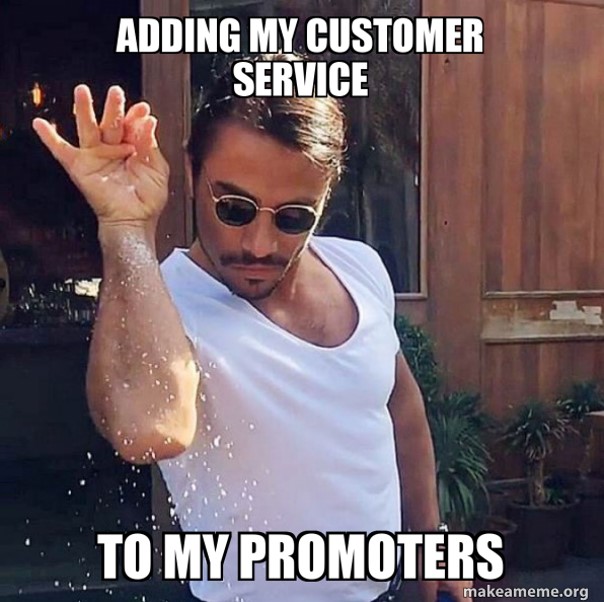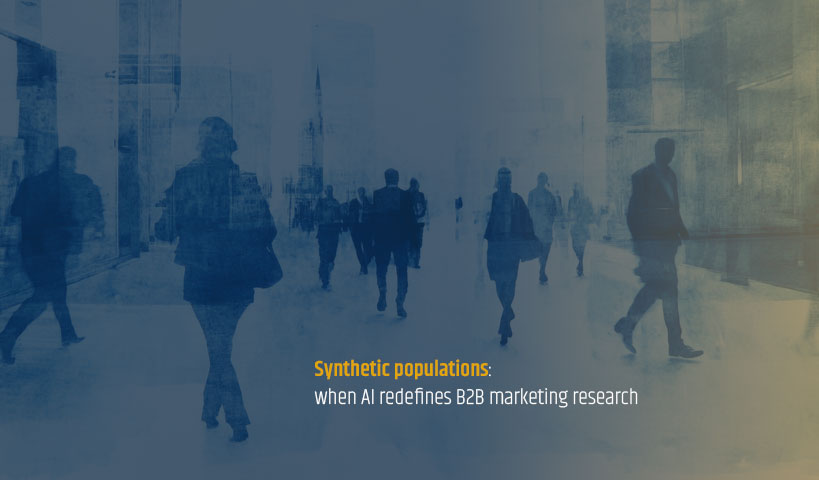
Artificial intelligence (AI) has been the talk of the town in recent weeks. Revolution in the making, Egyptian plague, blessing, coming plague… I’ll stop here! Good old-fashioned marketing research still exists, and here are some pointers to where and how you should be integrating it right now.
Start by mapping out your marketing processes.

As I wrote in my previous post “What is B2B marketing automation?”, get out your mad scientist glasses and start mapping out your marketing flows. Whether it’s on a tool in front of your computer, a big sheet of paper or a big whiteboard, who cares? The important thing is to drink strong coffee.
Identify the moments of truth
Typically, this could be at the delivery of a service, at the time of placing an order, following a customer meeting, or following a request for technical assistance.
Upstream, of course, customer acquisition must come into play; questionnaires on customer selection criteria can greatly refine your offer and your means of acquiring more customers. Such questionnaires can be distributed via social media, supported by a boost.
A one-off evaluation during the year (e.g.: once a year, a long-form satisfaction survey sent to all customers) can also be introduced into your process. Hint: consider suggesting a reward to encourage more responses (e.g. a contest).
Prepare questionnaires and questions
Next, you’ll need a survey tool. Among the best-known are SurveyMonkey and Zoho Survey. A good old “Google Form” may also be suitable, albeit with more limited functionality (only 9 question types, few pre-designed questionnaire templates).
Remember, the longer your questionnaire, the less likely you are to get responses. That’s why NPS (Net Promoter Score) questionnaires are so popular. They’re easy to answer, with just two or three short questions. They’re also establishing themselves as a standard (benchmarks exist). To find out more about NPS, we’ve written a blog post on the subject.
As a reminder, an NPS looks like this:
- On a scale of 0 to 10, how likely would you be to recommend our brand/product/service to a friend or colleague?
- Explain your answer (open-ended question)
- To this can be added (if the answer is 8 or less). What would be missing to give a better score
Measuring results
This step is planned when the questionnaires are designed: averages, groups to be compared and evaluated (X clientele and Y clientele), evaluations obtained over time, team evaluations, average comparisons, frequency comparisons, and so on. A helping hand from a statistician is recommended here.
Weaknesses of satisfaction surveys: typically, extremes will stand out. The very satisfied will respond, the very dissatisfied will respond, those in the middle much less so.
Use your promoters as leverage… and deal with the dissatisfied

Oh, you give me a perfect score and you love me? Would you like to publicly share your opinion on, like, LinkedIn, Google or my Facebook page?
Let’s push things a bit here: you’ve got a generous list of promoters, might it be possible to build lookalike audiences on Facebook Ads? Hmm…
And for the dissatisfied well, I’ve failed to satisfy you… Let’s leave it to public opinion and turn to the “customer satisfaction and retention” department.





